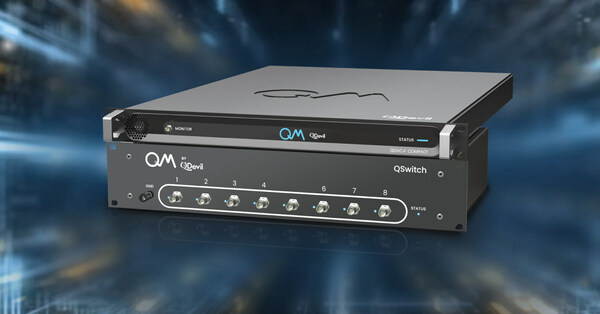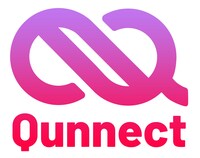Quantum News Briefs: February 7, 2024: Q-CTRL Awarded £1 Million Funding in UK Quantum Catalyst Competition; QuSecure Joins Post-Quantum Cryptography Alliance as Founding Member Furthering Technology to Address the Post-Quantum Cybersecurity Threat; Quantum Machines Introduces QDAC-II Compact and QSwitch – Ultra-Low-Noise Quantum Electronics Solutions; Qunnect’s QU-APC Device Wins Prestigious SPIE Prism Award in Quantum Technology; and MORE!

Quantum News Briefs: January 7, 2024:
Q-CTRL Awarded £1 Million Funding in UK Quantum Catalyst Competition
![]()
Q-CTRL, a pioneering firm in quantum technology, has been awarded £1 million by the Small Business Research Initiative (SBRI) Quantum Catalyst Fund Competition for its innovative proposal to enhance train schedule optimization with quantum computing. The company’s project, in collaboration with the Department for Transport and Network Rail, aims to develop quantum hardware-optimized algorithmic solvers based on its proprietary software. This advancement seeks to revolutionize large-scale rail networks and station routing, showcasing quantum computing’s potential to address complex logistical challenges. This initiative is part of a broader effort, backed by the Department for Science, Innovation and Technology (DSIT) and Innovate UK (IUK), to harness quantum technologies for the UK government’s benefit. Q-CTRL‘s success in the competition, moving into Phase 2 with significant funding, underscores the UK’s commitment to integrating quantum innovations in public services, promising substantial improvements in operational efficiency, resilience to disruptions, and reductions in emissions and costs.
QuSecure Joins Post-Quantum Cryptography Alliance as Founding Member Furthering Technology to Address the Post-Quantum Cybersecurity Threat

QuSecure™, Inc. has been announced as a founding member of the Post-Quantum Cryptography Alliance (PQCA), an initiative launched by the Linux Foundation to promote developing and adopting post-quantum cryptography (PQC). This collaboration aims to fortify digital security against the threats posed by quantum computing, bringing together industry leaders, researchers, and developers to create open-source, high-assurance software solutions. QuSecure will contribute its expertise in deploying PQC solutions within enterprise and government settings to the alliance, emphasizing the importance of cryptographic and key-strength agility. Through its QuProtect software, QuSecure offers a quantum-resilient cybersecurity suite that integrates seamlessly into existing networks, providing end-to-end protection without replacing current encryption methods. This initiative underlines a shared commitment to ensuring a secure digital future, leveraging QuSecure’s real-world implementation experience to advance PQC technology and facilitate its practical application across various industries.
Quantum Machines Introduces QDAC-II Compact and QSwitch – Ultra-Low-Noise Quantum Electronics Solutions
 Quantum Machines has expanded its quantum electronics portfolio with the launch of two new products: the QDAC-II Compact, a highly stable and low-noise 24-channel voltage source designed for tuning qubits, and the QSwitch, a software-controlled breakout box facilitating efficient experiment setup changes. Both devices aim to streamline quantum computing development by offering optimal signal integrity, versatility in operation, time-saving features through pre-programmed functions, and ease of software control. The compact design of the QDAC-II Compact allows for significant space savings without sacrificing performance, making it an ideal solution for optimizing the performance of superconducting and spin qubits. The QSwitch enhances research productivity by enabling quick switching between setups with its 240 relays. Quantum Machines’ commitment to advancing quantum computing is reflected in these innovations, designed to work stand-alone or in tandem, ensuring scalable and sophisticated control systems for quantum processors. These solutions will be showcased at the upcoming APS March Meeting, highlighting their potential to accelerate the practical deployment of quantum computing technologies.
Quantum Machines has expanded its quantum electronics portfolio with the launch of two new products: the QDAC-II Compact, a highly stable and low-noise 24-channel voltage source designed for tuning qubits, and the QSwitch, a software-controlled breakout box facilitating efficient experiment setup changes. Both devices aim to streamline quantum computing development by offering optimal signal integrity, versatility in operation, time-saving features through pre-programmed functions, and ease of software control. The compact design of the QDAC-II Compact allows for significant space savings without sacrificing performance, making it an ideal solution for optimizing the performance of superconducting and spin qubits. The QSwitch enhances research productivity by enabling quick switching between setups with its 240 relays. Quantum Machines’ commitment to advancing quantum computing is reflected in these innovations, designed to work stand-alone or in tandem, ensuring scalable and sophisticated control systems for quantum processors. These solutions will be showcased at the upcoming APS March Meeting, highlighting their potential to accelerate the practical deployment of quantum computing technologies.
Qunnect’s QU-APC Device Wins Prestigious SPIE Prism Award in Quantum Technology

Qunnect, a pioneer in quantum-secure networking technologies, has been awarded the prestigious Prism Award by SPIE, the international society for optics and photonics, in recognition of its innovative QU-APC (Auto Polarization Compensator) instrument within the quantum technology category. The Prism Awards annually celebrate breakthroughs in optics- and photonics-based technologies. Qunnect’s QU-APC stands out as the sole commercial product specifically engineered to counteract noise from environmental disturbances in telecom fibers, crucial for the high-fidelity transmission of quantum bits (qubits) across network nodes. This achievement highlights Qunnect’s leadership in quantum innovation, offering practical solutions for expanding quantum networks, sensors, and computing. Demonstrated on the GothamQ network in New York City, the QU-APC has achieved transmission fidelities over 95% and network uptime over 99%, cementing its role as a key component in entanglement distribution over telecom fibers. With installations in the US and plans for deployment in Europe later this year, the QU-APC exemplifies Qunnect’s commitment to advancing quantum connectivity.
In Other News: Investor Place article: “3 Quantum Computing Stocks to Buy for the Next Bull Run: February 2024”
![]()
The quantum computing sector is rapidly evolving, with IBM, IonQ, and Rigetti Computing leading the charge as prominent players, highlights a recent Investor Place article. IBM continues to push the boundaries with its advancements like the Quantum Heron engine and Quantum System Two, aiming to make quantum computing more scalable and accessible. IonQ stands out with its IonQ Forte device, boasting 35 computational qubits and optimizing both hardware and software to advance quantum machine learning and scientific applications. Rigetti Computing’s Ankaa-2 System represents a significant leap forward, offering a 2.5 times performance improvement over previous models and focusing on quantum machine learning for financial data analysis. These companies are not only expanding the capabilities of quantum computing but also illustrating its potential to revolutionize various industries, from secure communications to complex data analysis, highlighting the importance of innovation and collaboration in this cutting-edge field.
Kenna Hughes-Castleberry is the Managing Editor at Inside Quantum Technology and the Science Communicator at JILA (a partnership between the University of Colorado Boulder and NIST). Her writing beats include deep tech, quantum computing, and AI. Her work has been featured in National Geographic, Scientific American, Discover Magazine, New Scientist, Ars Technica, and more.



















